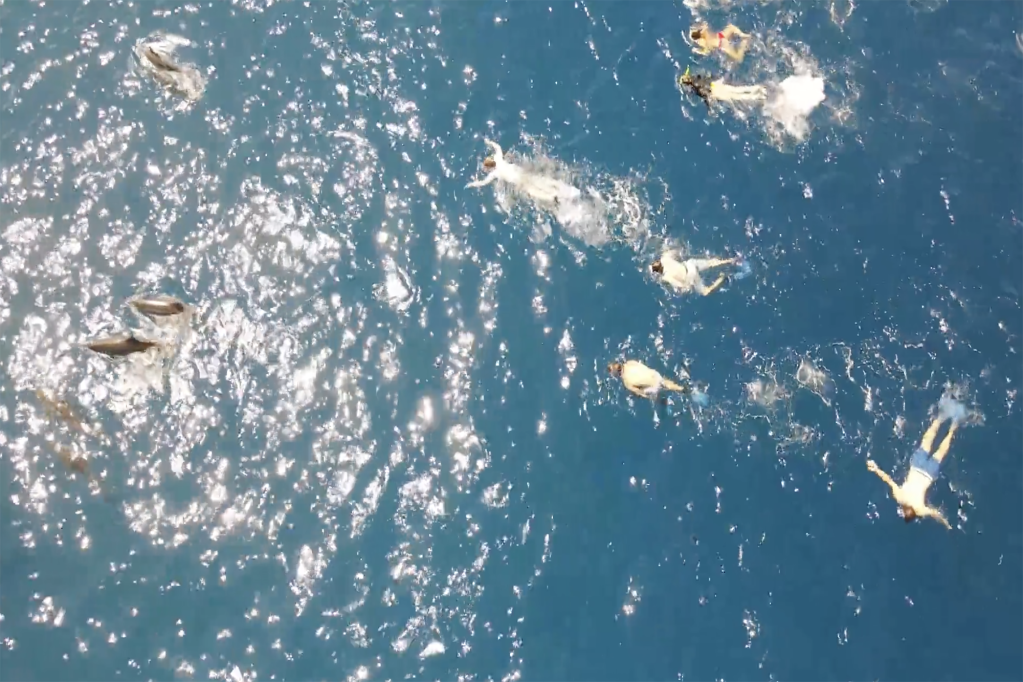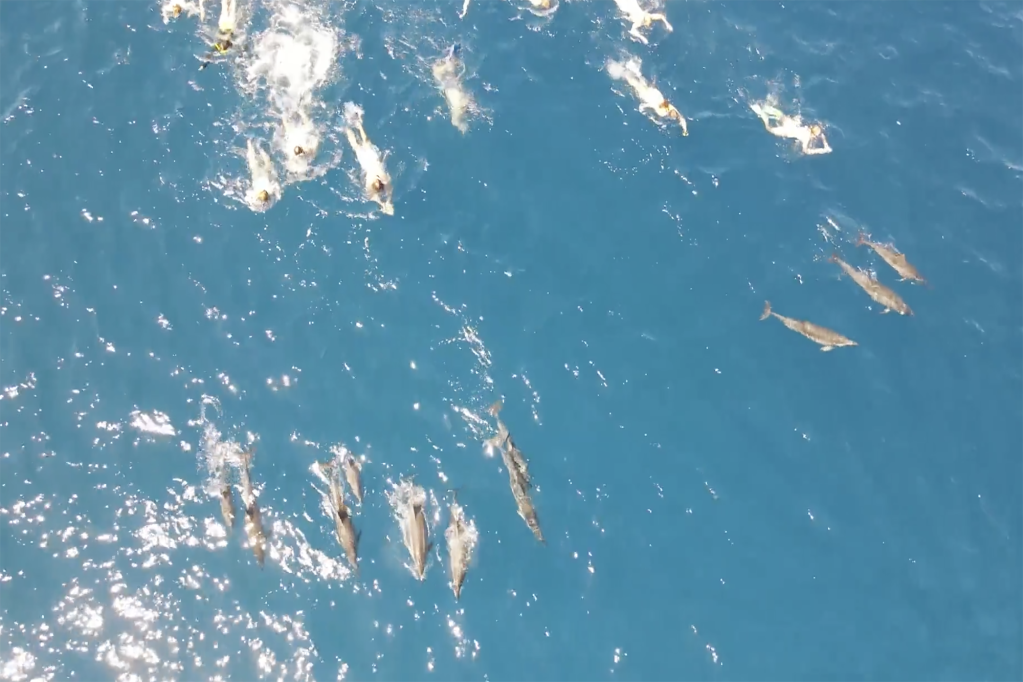Hawaii authorities say 33 swimmers were harassing dolphins
A group of 33 swimmers are being investigated after they were allegedly caught “aggressively pursuing, corralling, and harassing” a pod of dolphins in Hawaii Sunday, according to the Department of Land and Natural Resources.
Drone footage showed a group of snorkelers harassing the dolphins by going after them in any direction the helpless mammals tried to swim in the waters off Hōnaunau Bay near Hawaii’s Big Island.
Officers from the Division of Conservation and Resources Enforcement (DO-CARE) were on a routine check in the South Kona District when they came across the group of swimmers.
The swimmers were told by DO-CARE about the violation and were immediately investigated by “uniformed officers” once they got out of the water, Land and Natural Resources said in a press release.
“Hawaii’s DOCARE are deputized as federal officers and are authorized to enforce federal marine laws,” according to their website.
Under the National Oceanic and Atmospheric Administration, the law prohibits anyone from coming within 50 yards of a Hawaiian spinner dolphin that is also within two nautical miles from shore of the main Hawaiian Islands.
The swimmers could face well up to a maximum fine of $20,000 or one year in jail under the Marine Mammal Protection Act.

Spinner dolphins — known for their acrobatic ways in the ocean — are nocturnal mammals that hunt for their prey during the night
Their diets consist of feeding on small fish, shrimp, and squid.
In 2021, US regulators banned people from swimming with spinner dolphins due to heavy exposure with humans in the daytime.

Spinner dolphins, who often reside in Pacific waters, are known for their acrobatic ability and weigh between 130 and 170 pounds.
Dolphins only use one half of their brain to sleep; the other half is for them to stay alert for breathing purposes and look out for any possible dangers in their vicinity, according to Associated Press.
If disturbed in their resting habitat, spinner dolphins would be forced to move to an area less protected, according to the NOAA.
With Post wires
Read the full article Here


